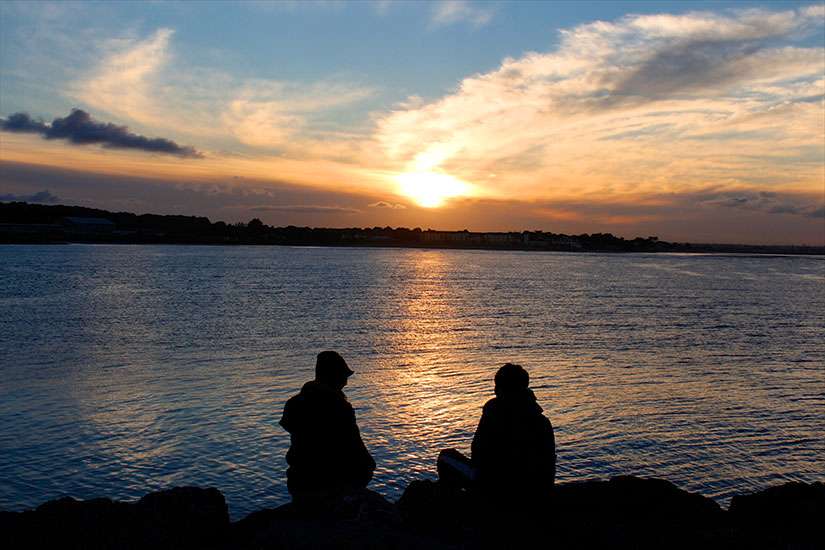An oasis in the heart of downtown Toronto, Allan Gardens has a reputation as a hangout for prostitutes, drug dealers and their clients. But things have changed recently, with the gentrification of parts of downtown, and it has become much safer. Still, when the sun goes down “The Gardens” still take on an unsettling demeanour.
A young man stopped me and requested “a quarter for a cup of coffee.” I gave him a loonie, telling him to buy four coffees and to share with three other friends. I think the humour was lost on him, but it gave us time to talk.
As we spoke, I was aware of a woman watching us from a bench and pretending to be immersed in applying her lipstick for her clients. As I left the young man, I walked south on Jarvis and soon heard the “click, click, click” of six-inch high heels. Within seconds the “lipstick lady” was beside me.
“Do you have some money for me?” she asked.
“Let’s walk together and we can chat,” I replied.
We started down the street together, when she stopped abruptly and stared intensely at me.
“You know,” she said, “you look in my eyes when we talk. No one ever looks in my eyes. It’s as if I make them unsettled and they are afraid to look at me.”
She was clearly a transvestite and her face had lost its innocence through years of drug use and prostitution. And yet there was a vulnerability in her eyes that said, “Will you accept and love me, or use me like so many others?”
When we reached the wide stone steps of Jarvis Street Baptist Church, she said, “Let’s sit here and talk.”
We sat for about 30 minutes as she told me of a life of poverty in the Maritimes, being abandoned by a mother and brought up by a father who struggled to raise a large family. Escaping to Montreal as a teenager she supported herself as best she knew how, becoming a transvestite prostitute. Finally she came to Toronto where she continued to support her drug habit through prostitution. Her personal history suddenly leapt into the present and she began to cry.
“I’m not long back from down East. My father died and I went back for his funeral.”
“That must have been a difficult time for you and your family,” I said.
“Yes,” she replied, “not only because of my father’s death, but because some of my family will not accept me for who I am.” Her words were punctuated by sobs that came from a deeply wounded heart. I asked, “What do you want in life?”
I am not sure why I asked that question. It is a difficult one to answer and one that I don’t recall ever asking anyone on the streets before. Her answer was almost immediate.
“I want my father to find life,” she said. “He gave up his life to support and raise his family, and now I want him to find life. Yes, that’s what I want.”
“You are a good person,” I said.
She stared at me again.
“How do you know I am a good person?” she challenged.
“I can tell how much you loved your father despite all you have been through in life,” I said. “Often it is hard to still find love in your heart, but you can.”
Over the next few years I ran into her frequently, and each time her first comment was, “My father sent you to me tonight. He knew I needed you now.”
Sadly her lifestyle caught up with her, and a few years later she was found dead of a drug overdose. No newspaper recorded her death, since she was just one of hundreds of faceless people caught up in the misery of addiction, those for whom living is much more painful than dying.
When I heard of her death I remembered her hope for the future that her father would find life. This too is my prayer and hope for her.
(Robert Kinghorn is a deacon of the Archdiocese of Toronto: robert.kinghorn@ekinghorn.com)


